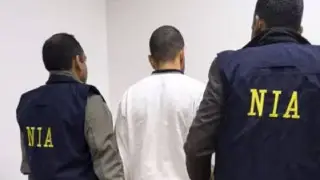
Al Falah University (Credit: OpenAI)
New Delhi: The Enforcement Directorate opened the probe after suspicious money movements were flagged from university linked accounts. Officials say large amounts were transferred over time to companies connected to Siddiqui and his family. These transfers did not match normal education related spending patterns. The agency then called for records and asked the university for explanations. When answers were found unsatisfactory, a detailed money trail check was launched. This finally led to his detention and production in a special court.
The Enforcement Directorate looks at cases where money may have been moved to hide its real source. In this matter, officials believe education funds may have been routed into private hands. They are treating these flows as possible money laundering under the law. The case is not about daily college expenses but about larger financial control. The agency wants to know who finally benefited from these transfers. It also wants to see if any rules for charitable or educational institutions were broken. All these points will later be placed before the court.
During searches, officers seized multiple phones, laptops and storage devices from homes and offices. They also collected files, agreements and banking papers linked to family owned firms. Every device will now be checked for emails, chats and transaction details. Officials say they want to match digital data with actual bank records. Any mismatch could be used as evidence of planned diversion. The focus is on understanding how many crores moved and in how many steps. This technical work may take several days inside the forensic labs.
Investigators believe funds first left university related accounts and then landed in family connected companies. From there the money may have been split into different smaller payments. Some amounts were reportedly shown as services or consultancy, which the agency doubts. Officials say they are checking if those services were real or only on paper. They also want to see if staff or students ever used these so called services. If no genuine work is found, such entries can strengthen the case. Each suspected transfer is being noted in a long chart.
Siddiqui’s side has argued in court that all transactions were legal and recorded. His lawyers say every rupee can be explained with bills and contracts. They claim the university followed proper procedures for payments and donations. They also maintain that business activity by family firms is not a crime by itself. According to them, the Enforcement Directorate is reading normal business as wrongdoing. They have asked the court to ensure fair treatment and proper medical care in custody. The final view will rest with the judge after full hearings.
For many students, the case has brought confusion and worry. They fear that degrees or classes could be affected if the university faces action. Some staff members are also concerned about salaries and future stability. At the same time, many people feel any misuse of education money must be exposed. They say parents trust institutions when they pay fees. If that trust is broken, the damage hits the whole education system. This is why the outcome of the case matters beyond one campus.
The case has again raised a key question about private universities and transparency. Who watches how their money is used year after year. Are audits strong enough to catch early signs of misuse. Should regulators keep a closer eye on related party deals. People want clear answers because students and parents invest their savings in education. In the end, the case will be judged by how clearly the truth is brought out in court. It will also show how serious the system is about cleaning up financial abuse in the education sector













Copyright © 2025 Top Indian News
